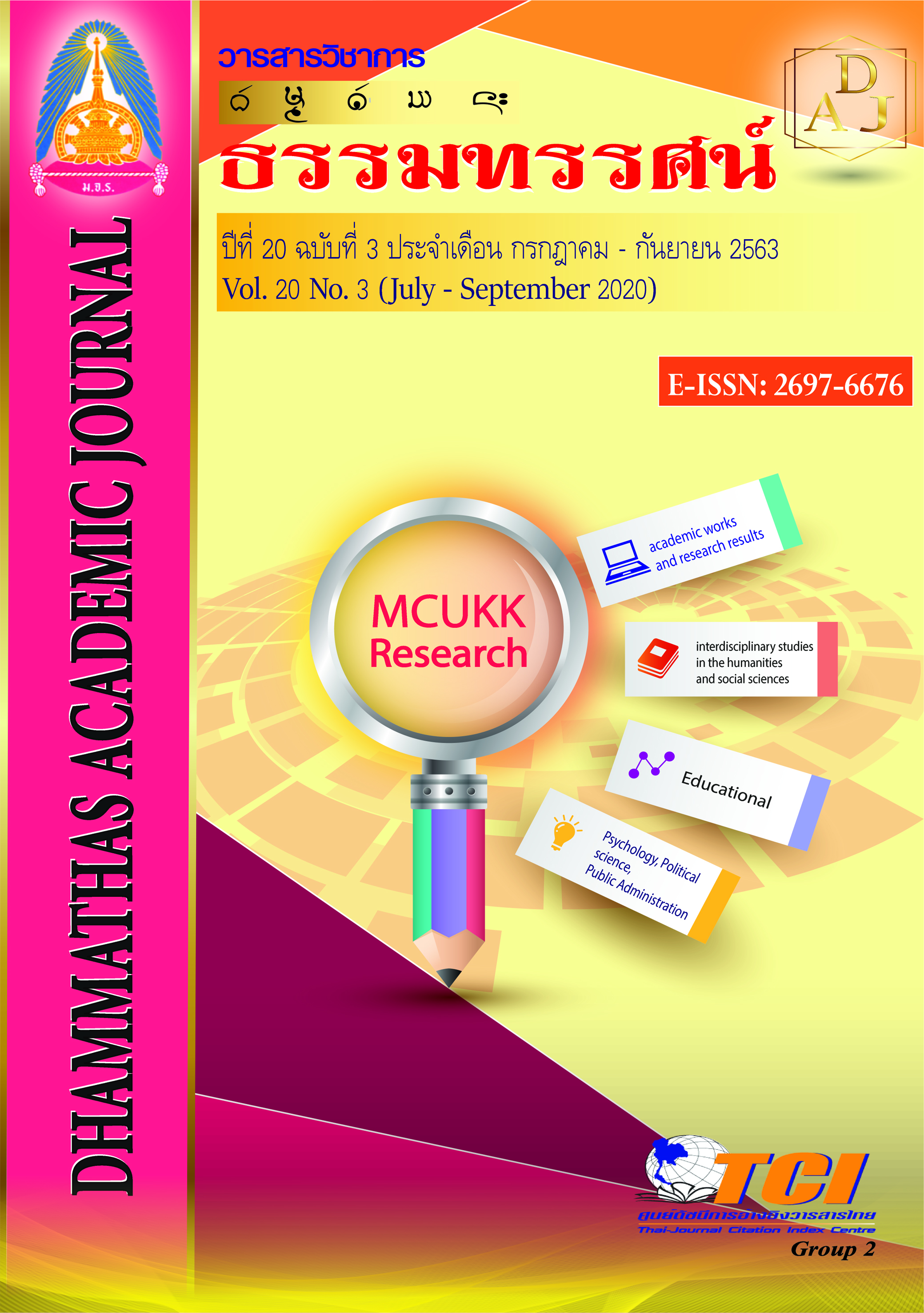The Development of Instructional Model base on Constructivist Theory in conjunction with The STAD Cooperative Learning for Enhancing in The Matical Problem Solving Ability on Fractions and Decimals for The Students in Seventh Grade
Main Article Content
Abstract
This research aims to: 1) Study the fundamental data and need assessment for development of instructional model. 2) Develop and verify the efficiency of instructional model. 3) Experiment using to instructional model base on constructivist theory in conjunction with the STAD cooperative learning for enhancing mathematical problem solving ability on fractions and decimals for the students in seventh grade. 4) Evaluate and develop instructional model base on constructivist theory in conjunction with the STAD cooperative learning for enhancing mathematical problem solving ability on fractions and decimals for the students in seventh grade. The sample was 34 students in seventh grade who are studying in the second semester 2017 academic year, Srisemawittayaserm school in Khon Kaen province. The research instruments were composed of this questionnaire, interview form, instructional model, lesson plans on fractions and decimals, learning achievement in mathematical test, problem solving ability test and the evaluation to students’ opinion toward instructional model. The data were analyzed by percentage, mean, standard deviation, t-test dependent and content analysis.
The results were as follow:
1. The instruction model was called PPSSE Model. There were 5 steps of instructional procedures as follows: 1) Preparation Step: P 2) Problem Solving Step: P 3) Summary Step: S 4) Skill Training Step: S 5) Evaluate Step: E. The efficiency of instructional model base on constructivist theory in conjunction with the STAD cooperative learning for enhancing mathematical problem solving ability on fractions and decimals for the students in seventh grade achieved the criterion of 80.94/81.88, which was higher than the required standard criterion of 80/80.
2. The learning achievement in mathematical and problem solving abilities of seventh grade students before and after being taught by the instructional model were statistically significant different at the .05 level.
3. The satisfaction of the of seventh grade students toward the instructional model. It was found that in overall, students were satisfied at a high level in all aspects. As for the aspect that students were satisfied at the highest level was the learning atmosphere and followed by learning activities.
Article Details
References
Bunargard, V. (2013). The Effects of The STAD Cooperative Learning Technique towards Learning Achievement and Critical Thinking Skills in Mathematics of Pratomsuksa 6 Students. Master of Education. Graduate School : Rambhai Barni Rajabhat University College.
Harnpitak, K. (2016). The effect of learning management based on Constructivist theory of mathematical concepts and problem-solving ability on the topic of Triangles of grade 5 students. Master's thesis. Graduate School : Burapha University.
Noyshomphoo, K. (2012). The Development of Learning Activities based on Constructivist Theory Focusing on Mathematical Problem Solving Skills in Combined Addition, Subtraction, multiplication and Division. Prathomsuksa 3. Journal of Education Graduate Studies Research Khon Kaen University, 5(3), 9-16.
Office of Academic Affairs and Educational Standards. (2008). Indicators and core learning content Learning math According to the basic education curriculum 2008. Bangkok : Printing house, Agricultural Cooperative of Thailand Limited.
Phapim, D. (2013). A study of mathematics learning achievement on Factors of a number using a cooperative teaching method with STAD techniques Grade 6. Graduate Education Thesis Mathematics. Graduate School : Udon Thani Rajabhat University.
Saduakkan, P. (1995). Effects of teaching mathematics based on the constructivist theory on lower secondary school students' mathematics learning achievement and transfer of learning abilities. Doctor of Philosophy Thesis. Graduate School : Chulalongkorn University.
Srichomphu, P. (2015). A study of mathematics learning achievement on the subject Probably by organizing a cooperative learning group STAD technique for students of grade 5, preparatory school Suwanit Wong. Master's thesis. Graduate School : Mahasarakham University.
Srisawat, C. (2012). The Development of Mathematics Learning Activitics using the Constructivist Learning Approach on “The Power Number” for Mathayomsuksa I Students. Journal of Education Graduate Studies Research Khon Kaen University, 6(1), 7-17.

